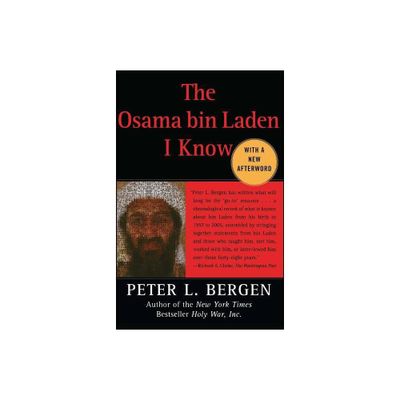Home
From Muhammad to Bin Laden: Religious and Ideological Sources of the Homicide Bombers Phenomenon
Loading Inventory...
Barnes and Noble
From Muhammad to Bin Laden: Religious and Ideological Sources of the Homicide Bombers Phenomenon
Current price: $180.00


Barnes and Noble
From Muhammad to Bin Laden: Religious and Ideological Sources of the Homicide Bombers Phenomenon
Current price: $180.00
Loading Inventory...
Size: Hardcover
*Product Information may vary - to confirm product availability, pricing, and additional information please contact Barnes and Noble
From Muhammad to Bin Laden analyzes the ideological, religious, and cultural foundations of one of the most inconceivable phenomena in contemporary world politics. Bukay analyzes the homicide bombings and atrocities perpetuated by worldwide jihad. He also uses information from primary sources to suggest how to cope with this lethal phenomenon.The book explores the meaning and interpretation of the seemingly benign concept of da'wah, the expansion of the Islamic community. Da'wah provides the religious and ideological justification for the lethal phenomenon of worldwide jihad; it describes the incentive and motivational drive that support the emergence and the operation of the fundamentalist Islamic movement. Bukay locates the dimensions of the phenomenon of jihad as well as the reasons, motivations, and aspects of the behavior of fundamentalist groups. The importance of this work lies in its skillful combination of historical perspectives and contemporary dynamics, religious and anthropological aspects of the phenomena, and its use of research tools of both the humanities and social sciences.By exploring the religious and cultural foundations of homicide bombers' activities, Bukay explains the essence of jihad, how it is connected to the da'wah, and together, how da'wah and jihad serve as the platform of the current worldwide terrorist activities. Bukay quotes religious edicts and declarations of classical and modern Islamic texts, as well as contemporary Islamic fanatic movements from Ibn Hanbal in the eighth century to Sayyid Qutb in the mid-twentieth century. He also aims to bring to the world's consciousness the aims and objectives of fundamentalist Islam. The volume concludes by challenging the free world to wake up before the bells of another world war start to ring. From Muhammad to Bin Laden will interest scholars, policymakers, and lay readers. Its importance is transparent, particularly in light of the current developments in the Middle East.


















